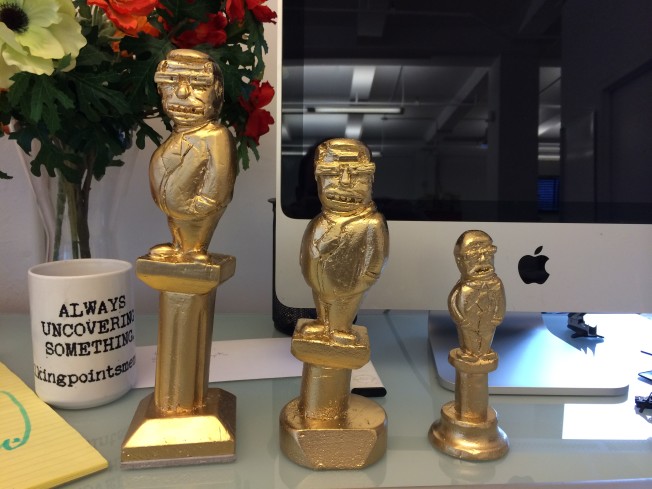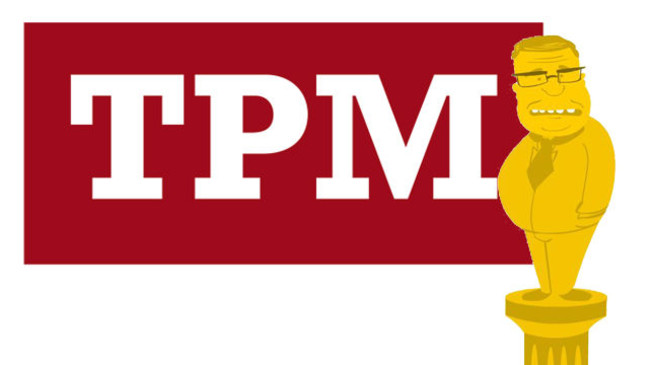It’s that time of year: The 2018 Golden Duke awards have been announced. The competition as usual is fierce. Given that the Dukes have been around now for more than a decade – joined this year by the Duke of the Week – I thought it might make sense to go back to the beginning and explain just what the Dukes are, why they’re called Dukes, and what the whole point is.
As many of you likely already know, the Golden Dukes celebrate a prime innovator and avatar in the world of early 21st century political corruption: former Rep. Randy “Duke” Cunningham. Cunningham was a Vietnam War Air Force vet who’d got his seat in Congress partly on the basis of his rep as a Vietnam fighter ace. He was aggressive, as dumb as a rock, and as it turned out, as crooked as a rock or whatever it is that is as corrupt as a rock is dumb. Cunningham had carried on a comical and lurid degree of corruption, having a literal bribe menu in which he itemized the things crooked contractors could and did purchase for given amounts of money. He bought a house with his ill-gotten gains. He bought a boat that he lived on docked on the Potomac. That was the Duke-stir. Get it?
Of course you do.
He had the folks who bribed him directly, and then there was a second tier of criminals in his orbit who get in the mix in other ways. Basically if you tried to create the most clownish, over-the-top and venal kind of congressional crook, it would be too late because Duke Cunningham had already created himself. He was as crooked as any Congressman who ever walked the Earth, but it was all just hidden until one day a reporter out West started poking around and the whole thing just poured out in a marvelous tsunami of muck and derp.
This was also in the era of the Jack Abramoff scandal, a broad-ranging series of pay-to-play scandals that typified and was inextricably tied to the corruption of the House GOP under the rule of then-Majority Leader Tom DeLay. That scandal brought down DeLay, Abramoff (who years later was actually a Golden Dukes judge), several other members of Congress, and a bunch of GOP political operatives.
It was shall we say a good time for political corruption, or a bad time depending on your perspective. But Cunningham was part of a different knot of corruption that ended up touching a small group of Southern California Republican members of the House. The bad acts behind the Abramoff network were crooked and brazen. But they just couldn’t compare to the Cunningham stuff. I mean, there was a bribe menu! It doesn’t get much more over the top than that.

Check it out! Pretty good likeness!

So that’s why they’re called the Golden Dukes. There’s even a Golden Dukes statuette. Three were originally cast. One was awarded to the late Toronto Mayor Rob Ford. Then, TPMer Hunter Walker was sent to Toronto to bestow the award on Ford. But Hunter couldn’t manage to get to him and had to be satisfied with giving it to Ford’s brother Doug Ford. Doug’s now the Premier of the Province of Ontario. Winners go on to big things.
But I digress.
As I said above, the mid-aughts were a good time for public corruption. And that gets at a key point about the Dukes and our institutional attitude toward muckraking and scandal. We like scandals. We like to luxuriate in the sheer clownish awfulness of them, get a novelistic read on the central characters, and appreciate the pure brazenness and cravenness of it all. The tenor we strive for – and tends to come naturally – is one of savoring the folly, ignominy and comedy of it all rather than outrage. Others can do outrage. It has its place. It’s not our focus or our aim. And that’s what the Dukes are about: a once a year event where we take stock of great achievement in public betrayals, venality and nonsense.






